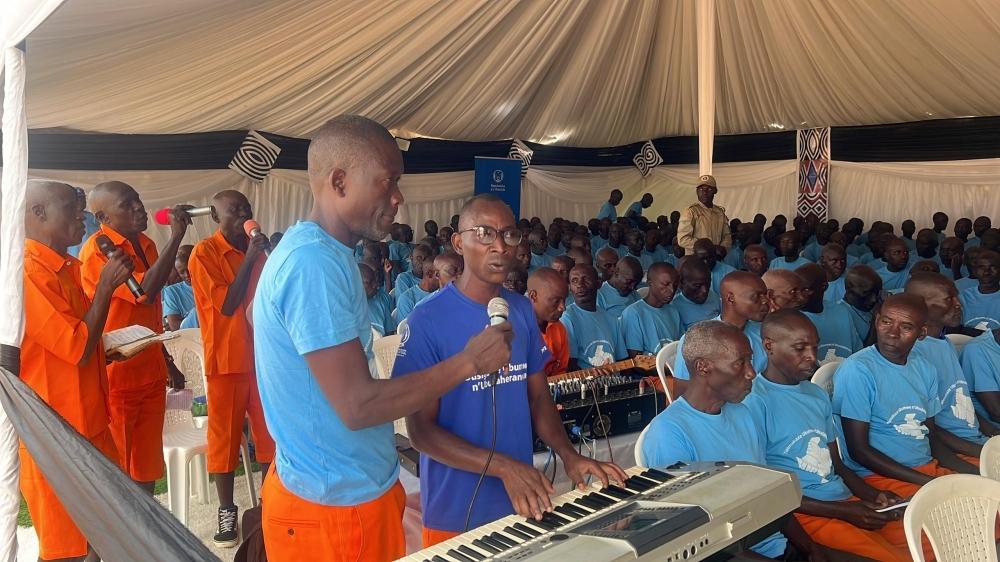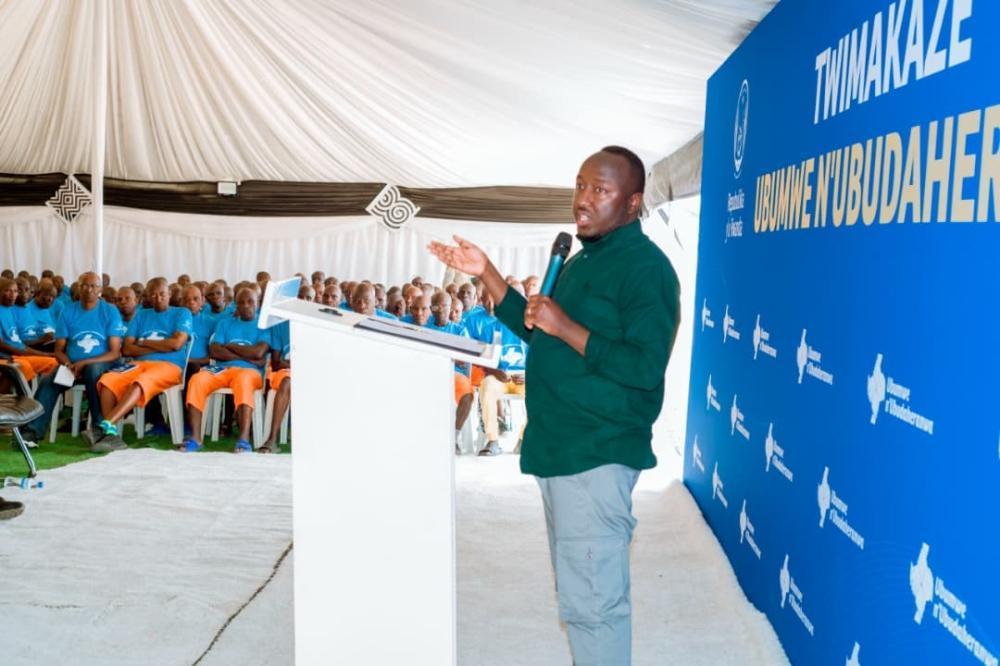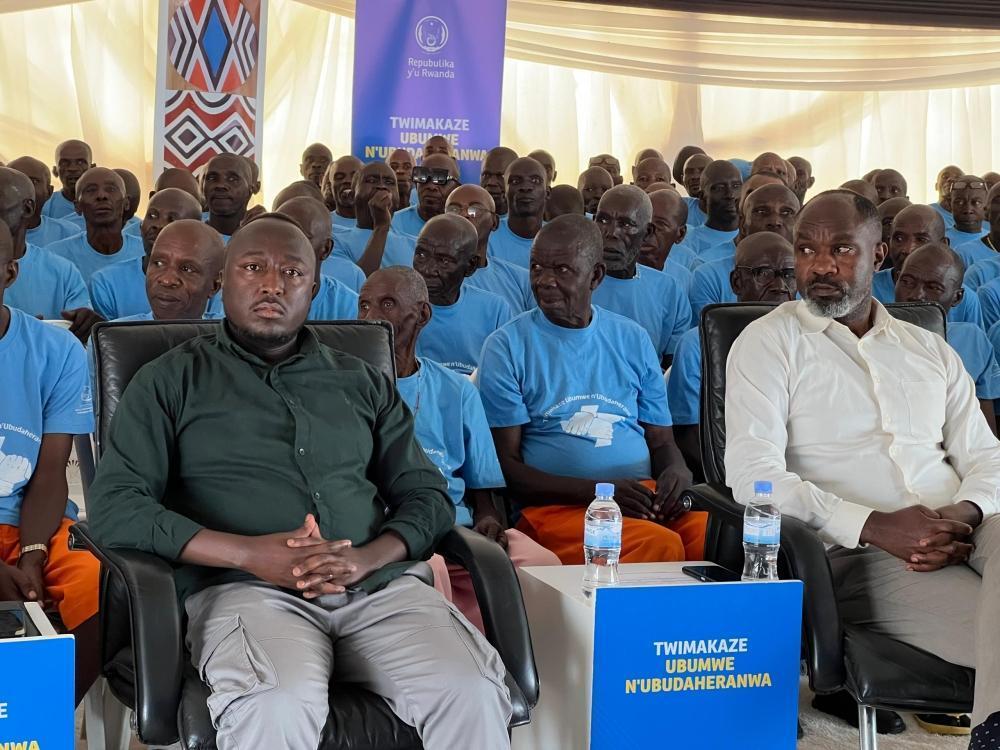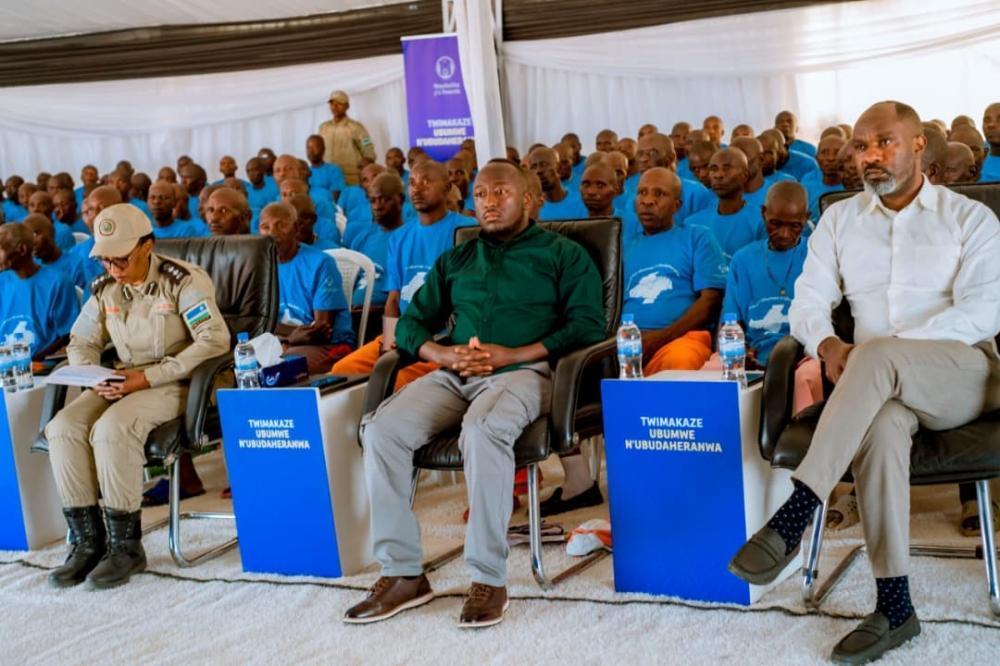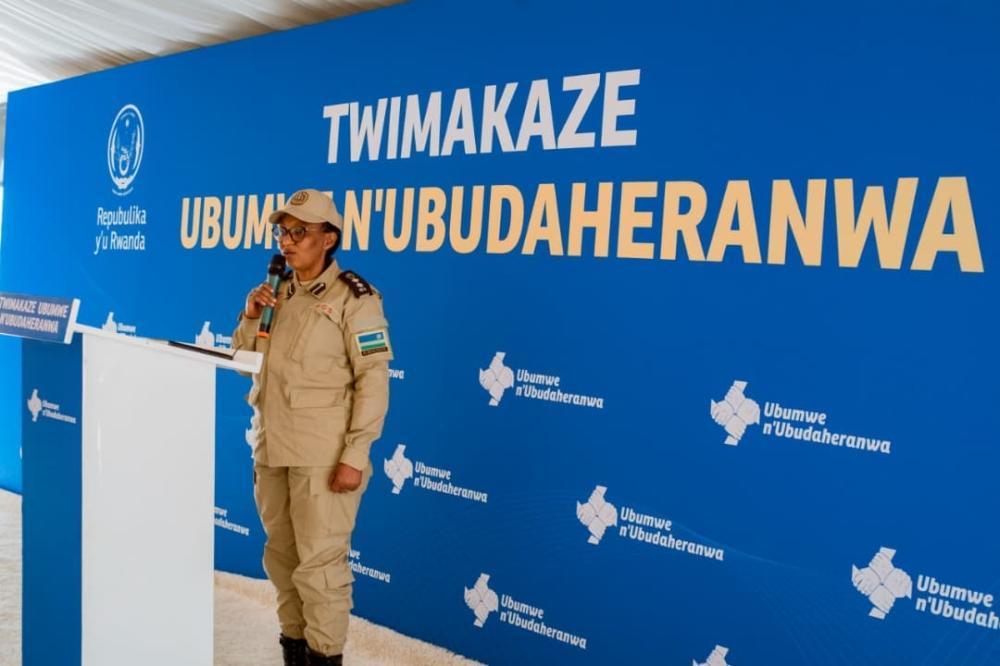Africa-Press – Rwanda. A total of 597 Genocide convicts nearing the completion of their sentences at Nyamasheke Correctional Facility, an all-male prison, are taking part in a rigorous civic engagement training programme. The training is preparing them for reintegration into society as part of the government’s policy to sustainably promote unity and reconciliation.
The month-long training in its 4th edition was launched by the Ministry of National Unity and Civic Engagement on September 3.
Eric Mahoro, Permanent Secretary in the Ministry of National Unity and Civic Engagement, noted that the purpose of the training is to remind participants about government policies, the progress achieved in unity and resilience, and, most importantly, the need to remain vigilant against anything that could lead the country back to genocide.
“We’re preparing them to live in harmony with their own families, with the families of those they killed, and with the Rwandan community at large. This is to help them adapt to the new environment and avoid situations that could lead some of them back to prison for similar crimes,” he explained.
“They need to be ready to reintegrate and contribute to rebuilding their country. Government authorities are prepared to receive them, but they too must prepare themselves. Some are released and then withdraw from civic activities, which is dangerous and something they should never do,” he added.
To make the training more effective, the inmates have been grouped into 14 sub-groups based on the districts where they will reintegrate after release. Each sub-group has an average of 42 participants. These groups are designed to help inmates build stronger connections, exchange ideas, and work together on different activities.
After completing their sentences, the convicts will return to their respective home districts. According to figures, Huye is set to receive 58, Rwamagana 57, Gisagara 46, Gasabo 42, Nyaruguru 38, Nyamasheke 16, Rusizi 12, and Karongi 28.
Mahoro said that during the training, a day is dedicated to families, since many of the inmates have not seen their relatives for a long time. On this day, family members are invited to attend, observe the kind of training their loved ones have been receiving, and accompany them on their journey of transformation once they are released.
“This programme doesn’t end here. It continues within their respective families. We are working closely with local authorities to build an effective structure that will help them reintegrate successfully and act responsibly. While implementation may have seemed weak in the past, we believe this will gradually change, and we do not expect anyone to go astray,” he explained.
“We urge them to make the most of this opportunity. It is a rare addition to what they received while serving their sentences. We want them to transform, change for good, and avoid being misled by false information circulating on social media. Those are rumours, and they should not rely on them at all.”
Ildephonse Rukundo, a former official in the Ministry of Youth before the 1994 Genocide against the Tutsi, is among the participants who were imprisoned at Mageragere Correctional Facility in Nyarugenge District for 19 years. He says the training will help them change their perspective, learn how to live in harmony, and join the rest of Rwandans in rebuilding the country.
“I was a leader serving the country, but I went astray. I have learnt a lot, and I cannot repeat such an evil act. All Rwandans now know the truth. We don’t expect anyone to come and mislead us into committing such terrible acts again,” he admitted.
Rukundo thanked the government for initiating the programme to prepare them for reintegration. However, he admitted that there are still people who wish for the same tragedy to happen again, but he is determined to stand by the truth.
“If we collectively and consistently teach them what is right, they will gain nothing but eventually surrender to good and to what the government is working towards for the future,” he said.
Pascal Faida, 64, originally from Mubuga Sector in Karongi District, was sentenced to 19 years. He said the training is an eye-opener, noting that without it, there would be a risk of repeating the same crimes, starting with harboring genocide ideologies.
“I’ve learned a lot. I have been able to reflect on myself, on those I wronged, and to recognise the evil and stand against it. We are going to educate young people and others as well. I am a witness to everything that happened,” he said.
According to a recent report by the Rwanda Correctional Service, over 65,000 people (75%) have completed their sentences. More than 16,000 (22%) are still in prison awaiting release, while approximately 4,295 (3%) have been sentenced to life imprisonment. 457 people are currently incarcerated for genocide ideology.
Eric Mahoro, Permanent Secretary in the Ministry of National Unity and Civic Engagement addresses the trainees during a civic workshop
The month-long training, now in its fourth edition, was launched by the Ministry of National Unity and Civic Engagement on September 3.
For More News And Analysis About Rwanda Follow Africa-Press

